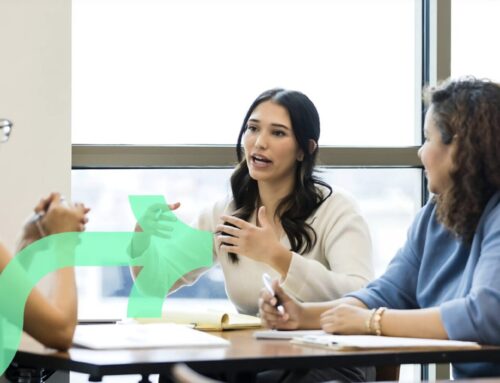The modern UK workplace is a vibrant tapestry woven from the threads of multiple generations. From the experience of Baby Boomers to the digital fluency of Generation Z, each cohort brings unique perspectives, communication styles, and expectations. While this diversity can be a powerful asset, it can also present significant communication challenges for HR managers, L&D professionals, sales leaders, trainers, and personality coaches.
Consider this: a recent study by Deloitte found that generational differences are a significant factor impacting workplace culture and productivity[^1]. Misunderstandings can arise from varying preferences for communication channels (think email versus instant messaging), approaches to feedback, and even interpretations of workplace etiquette. This can lead to friction, reduced collaboration, and ultimately, a less engaged workforce.
So, how can UK businesses effectively bridge these generational gaps and foster a truly cohesive and productive environment? The answer lies in understanding individual communication styles and leveraging tools that promote empathy and connection. This is where Discflow’s DISC insights come into their own.
Understanding the Generational Mosaic Through DISC
The DISC model – Dominance, Influence, Steadiness, and Conscientiousness – provides a powerful framework for understanding individual behavioural styles. By applying this lens to the different generations in your workplace, you can gain valuable insights into their communication preferences and potential areas of friction:
- Baby Boomers (born roughly 1946-1964): Often value face-to-face communication and formal channels. They may lean towards a more Conscientious (C) style, appreciating detailed information and structured processes, or a Steadiness (S) style, valuing loyalty and consistent communication.
- Generation X (born roughly 1965-1980): Tend to be more independent and pragmatic. They might exhibit a more Dominant (D) style, valuing directness and efficiency, or a blend of styles depending on the context.
- Millennials (born roughly 1981-1996): Often comfortable with technology and collaborative environments. They may lean towards an Influential (I) style, valuing connection and enthusiasm, but can also adapt their style.
- Generation Z (born roughly 1997-2012): Digital natives who thrive on instant communication and visual content. They might display a range of DISC styles, but their preference for quick, informal communication can sometimes clash with other generations. A study by Robert Half highlights that understanding Gen Z’s communication preferences is crucial for effective onboarding and engagement[^2].
Discflow’s Tools: Building Bridges, Not Walls
Discflow offers a suite of tools designed to help your organisation navigate these generational nuances and build stronger, more collaborative teams:
- DISC Assessments: Our comprehensive DISC assessments provide individuals with a deep understanding of their own behavioural style and how they interact with others. This self-awareness is the first crucial step in fostering more effective communication across generations. Imagine a training session where a Boomer understands why their detailed emails might overwhelm a Gen Z colleague who prefers a quick Slack message, and vice versa. This understanding fosters mutual respect and adaptability.
- FlowHub Platform: Our innovative FlowHub platform takes DISC insights to the next level. It allows teams to visualise their collective DISC styles, identify potential communication pinch points, and access tailored tips for improving collaboration. For instance, FlowHub can highlight a team with a high number of “D” styles and suggest strategies for ensuring all voices are heard, particularly from those with “S” styles who might be less assertive. This promotes a more inclusive environment where all generations feel valued and empowered to contribute. You can learn more about how FlowHub facilitates team collaboration [here – internal link to FlowHub page].
- Tailored Training Programmes: Discflow provides bespoke training programmes designed to equip your HR managers, L&D professionals, and trainers with the skills to facilitate multi-generational communication effectively. These programmes delve deeper into understanding generational nuances through the DISC lens and provide practical strategies for fostering inclusive communication practices. Our training can help your sales managers understand how to tailor their communication approach when leading a multi-generational sales team, boosting team performance and morale.

Practical Strategies for a Harmonious Multi-Generational Workplace
Beyond leveraging DISC insights, consider these practical strategies to foster better communication across generations in your UK workplace:
- Embrace Multi-Channel Communication: Offer a variety of communication channels to cater to different preferences. This includes email, instant messaging platforms, video conferencing, and face-to-face meetings. Encourage teams to discuss and agree on preferred communication methods for different situations.
- Facilitate Intergenerational Mentoring: Pair employees from different generations to share knowledge and perspectives. This can break down stereotypes and foster mutual understanding. A report by the CIPD emphasises the benefits of intergenerational mentoring in fostering knowledge transfer and inclusivity[^3].
- Provide Communication Skills Training: Equip all employees with the skills to communicate effectively with individuals who have different communication styles. Incorporating DISC principles into this training can be highly impactful.
- Create Inclusive Meeting Environments: Ensure that all voices are heard in meetings, regardless of generation. Encourage diverse participation and be mindful of communication styles. For example, some generations may prefer time to reflect before contributing, while others are more comfortable with spontaneous brainstorming.
- Promote Digital Literacy Across Generations: Offer training and support to ensure all employees are comfortable using the necessary technology for communication and collaboration.
The Future is Collaborative
The multi-generational workforce is not a challenge to be overcome, but rather a rich opportunity to be embraced. By understanding the unique communication styles and preferences of each generation through the lens of DISC, and by leveraging tools like Discflow’s assessments and FlowHub platform, UK businesses can build bridges of understanding, foster stronger collaboration, and unlock the full potential of their diverse workforce.
Ready to transform your workplace communication and build a truly inclusive environment? Contact Discflow UK today to learn more about how our DISC solutions can empower your organisation.
[^1]: Deloitte. (Year). Title of relevant Deloitte report on generational differences in the workplace. [Link to Deloitte report if available] [^2]: Robert Half. (Year). Title of relevant Robert Half study on Gen Z in the workplace. [Link to Robert Half study if available] [^3]: CIPD. (Year). Title of relevant CIPD report on intergenerational mentoring. [Link to CIPD report if available]




